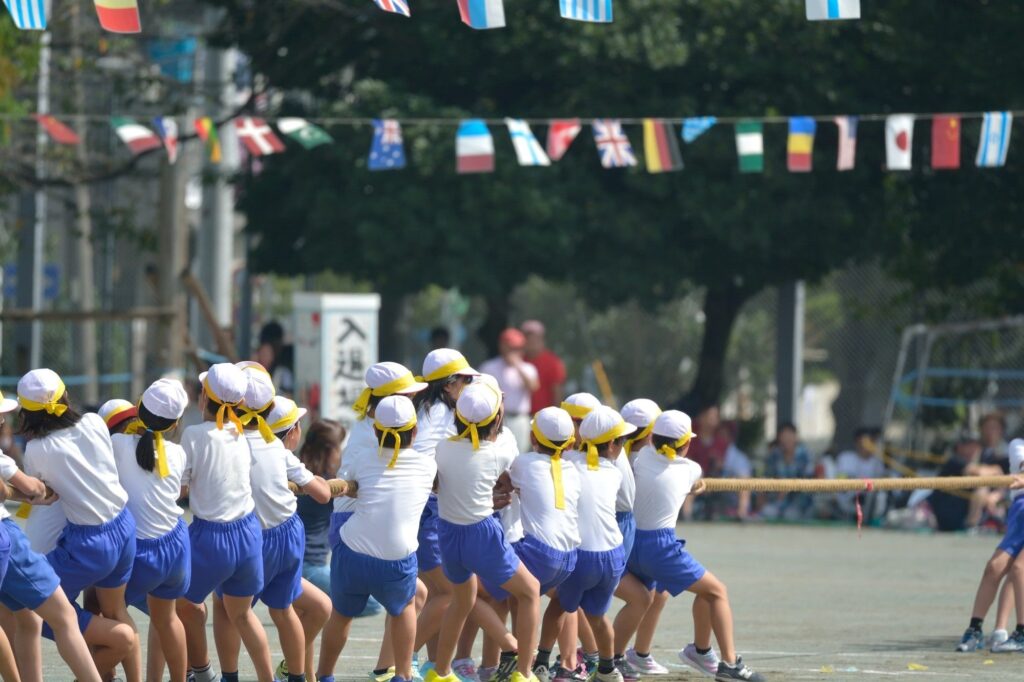
Reading Passage:
Japan’s Sports Day (体育の日, Taiiku no Hi), held on the second Monday of October, offers a unique glimpse into the nation’s commitment to physical fitness and cultural heritage. Established in 1966 to commemorate the opening of the 1964 Tokyo Olympics, the holiday highlights the importance of a healthy lifestyle. Interestingly, Sports Day not only celebrates athletic achievements but also aims to foster community spirit through widespread participation in sports. The 1964 Olympics played a pivotal role in Japan’s post-war revitalization, symbolizing a renewed national identity and modernization.
The upcoming three-day weekend is more than just a break; it’s an opportunity for both leisure and cultural enrichment. Known informally as a “silver week” when it coincides with other public holidays, this period sees a surge in domestic travel. Many Japanese use the time to engage in activities that allow them to detach from the daily grind and reconnect with nature. Popular destinations, including Kyoto and Nikko, draw crowds seeking to enjoy the vibrant autumn foliage, while more adventurous individuals venture into uncharted territories, exploring hidden hiking trails and secluded hot springs. This pursuit of lesser-known experiences reflects a growing trend among travelers who crave authenticity over the conventional tourist path.
The holiday also sparks a variety of local traditions. In rural areas, families gather to celebrate the harvest season, stashing away crops and preparing traditional foods that reflect the changing seasons. Communities often organize sporting events, such as marathons and soccer tournaments, fostering a sense of unity and promoting health. Interestingly, the connection between physical activity and cultural observance is deeply rooted in Japanese society, where seasonal changes are not only witnessed but actively celebrated.
In essence, the three-day weekend encapsulates the Japanese philosophy of balancing modern life with cultural practices, encouraging both physical rejuvenation and spiritual reflection.
Comprehension Quiz
- What does the three-day weekend in Japan represent beyond just a break?
a) It focuses solely on athletic achievements.
b) It offers an opportunity for cultural enrichment and leisure.
c) It is only about visiting popular tourist destinations.
d) It is primarily a time for shopping and urban activities.
Vocabulary and Grammar
- Choose the word that best replaces “detach” in the following sentence:
“Many people use the time to detach from their daily routines and relax in nature.”
a) Disconnect
b) Intensify
c) Engage
d) Prolong - Select the correct form to complete the sentence:
The tradition of stashing away seasonal foods ___ back centuries in Japanese culture.
a) traces
b) traced
c) tracing
d) is traced - Which of the following is closest in meaning to “pivotal” as used in the passage?
a) Insignificant
b) Fundamental
c) Marginal
d) Optional
Discussion Questions
- Have you ever traveled during a long holiday? Share your most memorable travel experience.
- How do you think holidays can help promote a healthy lifestyle and cultural traditions?
